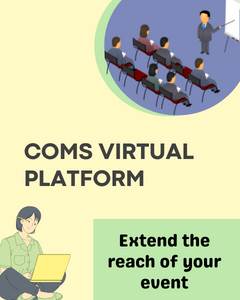Home / Conference Listings / Informatics / Human-Computer Interaction, User Experience, Virtual Reality
Conferences > Informatics > Human-Computer Interaction, User Experience, Virtual Reality
Select a location
ALL COUNTRIES (11)
1
Dagstuhl-Seminar — Contextualising Complexity – Faithful Visualisations for Biology
01 Mar 2026 - 06 Mar 2026 • Schloss Dagstuhl, Germany
Event listing ID:
1671299
Event website:
2
Dagstuhl-Seminar — Driver State Modelling: Cognitive and Computational Challenges
22 Mar 2026 - 27 Mar 2026 • Schloss Dagstuhl, Germany
Event listing ID:
1671358
Event website:
3
ACM IUI 2026 — The 31st Annual ACM Conference on Intelligent User Interfaces
23 Mar 2026 - 26 Mar 2026 • Paphos, Cyprus
Event listing ID:
1666975
Event website:
4
ICCGV 2026 — The Ninth International Conference on Computer Graphics and Virtuality
28 Mar 2026 - 30 Mar 2026 • Chengdu, China
Event listing ID:
1687261
Event website:
5
Dagstuhl-Seminar — Exertion and Fatigue in Body-Based Interactive Systems
19 Apr 2026 - 22 Apr 2026 • Schloss Dagstuhl, Germany
Event listing ID:
1671448
Event website:
6
WFCS 2026 — 22nd IEEE International Conference on Factory Communication Systems
21 Apr 2026 - 24 Apr 2026 • Offenburg, Germany
Event listing ID:
1685342
Event website:
7
Dagstuhl-Seminar — Rethinking Research Methods in HCI: New Perspectives for and with AI Tools
26 Apr 2026 - 30 Apr 2026 • Schloss Dagstuhl, Germany
Event listing ID:
1671445
Event website:
8
Dagstuhl-Seminar — From Speech Translation to Multilingual Communication – New Research Challenges
14 Jun 2026 - 17 Jun 2026 • Schloss Dagstuhl, Germany
Event listing ID:
1671565
Event website:
9
Dagstuhl-Seminar — Harms in Digital Games: Sociotechnical Solutions for Prevention
21 Jun 2026 - 26 Jun 2026 • Schloss Dagstuhl, Germany
Event listing ID:
1671542
Event website:
10
Dagstuhl-Seminar — Multimodal Data Quality – Human, Computational, and Institutional Perspectives
05 Jul 2026 - 10 Jul 2026 • Schloss Dagstuhl, Germany
Event listing ID:
1671626
Event website:
11
IHCI — 20th International Conference on Interfaces and Human Computer Interaction 2026
25 Jul 2026 - 27 Jul 2026 • Valencia, Spain
Event listing ID:
1695445
Event website:
Conference-Service.com offers, as part of its business activities, a directory of upcoming scientific and technical meetings. The calendar is published for the convenience of conference participants and we strive to support conference organisers who need to publish their upcoming events. Although great care is being taken to ensure the correctness of all entries, we cannot accept any liability that may arise from the presence, absence or incorrectness of any particular information on this website. Always check with the meeting organiser before making arrangements to participate in an event!
Last updated: 1 February 2026




